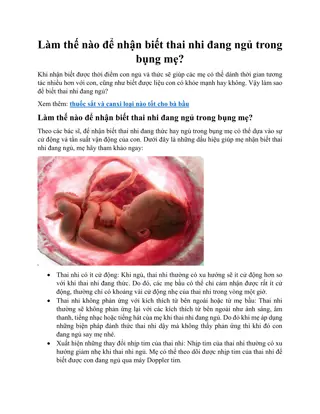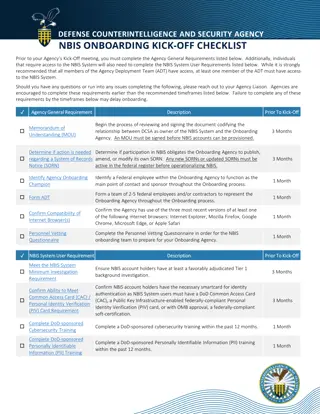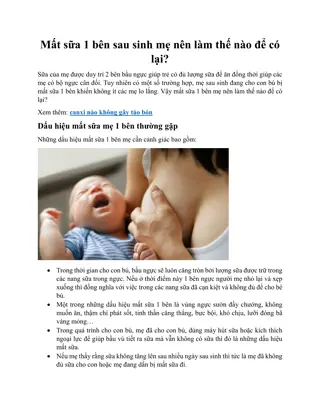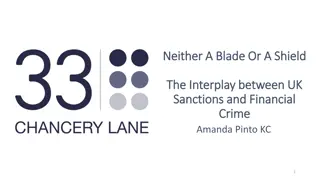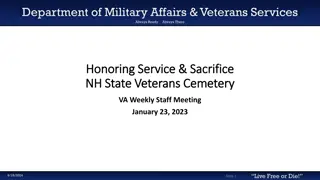Understanding the FBI and NCA Memorandum of Understanding
Aligned with the NCA's strategic plan, the FBI and NCA Memorandum of Understanding aims to expand access and leverage partnerships to ensure the quality of services in federal cases. Accredited Children's Advocacy Centers play a crucial role in providing evidence-based interventions for child victims, while also supporting law enforcement investigations. The MOU addresses historical challenges, outlines parameters for collaboration, and emphasizes the importance of supporting victims of federal crimes investigated by the FBI.
Download Presentation

Please find below an Image/Link to download the presentation.
The content on the website is provided AS IS for your information and personal use only. It may not be sold, licensed, or shared on other websites without obtaining consent from the author. Download presentation by click this link. If you encounter any issues during the download, it is possible that the publisher has removed the file from their server.
E N D
Presentation Transcript
FBI & NCA Memorandum of Understanding
INTRODUCTION Aligned with NCA S Strategic plan Goal: Expanding Access Goal: Leveraging Partnerships and Resource Development In order to ensure the quality of services provided in federal cases, only Accredited CACs are eligible to participate. Local and Federal partnership
WHY AN MOU? To ensure that all children who need access to the services of a Children s Advocacy Center have an evidence- based intervention that helps them heal, while ensuring that our law enforcement partners have the resources they need to investigate and prosecute these cases.
History & Purpose The purpose of the MOU is to directly address a historical problem that created pain points for both CACs and the FBI: 1)Local FBI special agents are not authorized to enter into individual CAC MOUs. This document creates a vehicle for their involvement in local CACs on an official (and not ad hoc) basis. 2)The FBI currently has no way of knowing which Accredited CACs want to be used for federal cases. This provides a means for CACs to voluntarily agree to serve those child/youth victims. 3)Historically, neither CACs nor the FBI knew what to expect from each other and therefore this MOU is intended to improve consistency.
PARAMETERS of the MOU Outlines the FBI S use of CAC s, including the use of CAC employees trained as FI Outlines what CACs can expect from the FBI in these specialized federal cases. Clarifies the disposition of documentation and video recordings Solidifies a collaborative effort to provide supportive services to victims and their families
BACKGROUND FBI Crimes Against Children FBI complies with federal law and the AG s General Guidelines Department personnel are required to provide age appropriate support services and referrals for community based services. Guidelines also emphasize resources and the use of MDT s when feasible. When possible interviews are conducted by trained personnel
BACKGROUND OVA Ensuring victims of federal crimes investigated by the FBI receive the rights, assistance, information, and services to help them cope through the traumatic event and judicial process. Provides oversight Child/Adolescent Forensic Interviewers (CAFIs) Field office-based Victim Specialists (VSs)
BACKGROUND FBI Responsible entities Office for Victim Assistance (OVA) Violent Crimes Against Children Section (VCACS) VCACS Child crimes; to include: Sex abuse Sexual exploitation Pornography (to include production and distribution) Human trafficking Slavery Physical abuse Neglect
History of FBI Interviewing Program 2001 training 2014 - Six full-time interviewer positions Regionally located across the country to support all 56 field offices Two assigned to Indian Country Conducted more than 12,000 interviews Provided training to more than 11,000 law enforcement personnel across the world Expanded involvement of victim services professionals Expanded collaboration with CACs, MDTs - First two interviewers hired, first
FBI Forensic Interviewing Program First program in a federal investigative agency Managed by the FBI s Office for Victim Assistance Highly experienced/skilled forensic interviewers with mental health/social work backgrounds CAFI s conduct interviews, provide case consultation, assist with operational planning in cases and provide training. Interviewers may interview adult victims under special circumstances May testify as an expert in local, state, federal, military court proceedings 1 0
Cases Involving FBI Forensic Interviewers Child Exploitation (Pornography) Juvenile Sex Trafficking Indian Country Violations Sexual Abuse Physical Abuse Homicide Child Abduction Color of Law Crime on the High Seas Human Trafficking (Labor) Any violation involving child/adolescent victim or witnesses. Counterterrorism International Parental Kidnapping Bank Robbery Witnesses 1 1
Triage Model The CAFI s triage each case when scheduling. Goal is to: Utilize best interview resource for optimal outcome for both the case and the child/adolescent victim CAFI s triage case by case and provide consultation to determine: Response time Who is best resource to conduct interview Best location for interview Other considerations unique to each case
NCA RESPONSIBILITIES NCA agreed to: Establish a working relationship between NCA/Accredited CACs and the FBI. Encourage membership to develop evidenced based FI collaboration with FBI. Provide a liaison between the FBI and local CACs to troubleshoot and address concerns regarding the implementation of the MOU and regarding FBI led investigations/interviews of children. Provide training on the MOU to interested Accredited CACs, Chapters, and other stakeholders. Invite eligible CACs to voluntarily participate in the MOU and to provide the FBI with information about those that want to participate in the MOU.
CAC RESPONSIBILITIES Accredited CACs to carefully consider their willingness and availability to assist federal law enforcement and improve their knowledge of child exploitation and trafficking cases. For those voluntarily agreeing to participate in the MOU: Allow FBI CAFI s to utilize the CAC space to conduct interviews when available and consistent with NCA Standards. Given the nature of these cases, to provide after-hours access for FBI interviews consistent with after-hours policy and practices for all law enforcement. When requested, to provide a CAC interviewer. That forensic interviewer must demonstrate compliance with NCA National Standards for Accreditation training requirements.
CAC RESPONSIBILITIES: For those voluntarily participating in MOU: Consistent with NCA National Standards for Accreditation Victim Advocacy Standard, CACs or FBI victim specialist (as determined by the needs of the case) makes sure services are provided to the family. Consistent with NCA s Case Review Standard regarding law enforcement participation, the FBI CAFI, Agent, or Victim Specialist will be notified of case review and invited to participate. Conversely, FBI cases will not be case-reviewed without such notification or presence. CAC may be permitted to view an FBI-conducted interview. However, the decision will be made by the FBI based upon legal restraints.
FBI RESPONSIBILITIES: FBI will triage their cases to determine the best interviewer, location, and time FBI CAFI s meet NCA National Standards for Accreditation forensic interviewing standards. FBI Special Agents and Task Force Officers who wish to conduct interviews themselves must demonstrate that they have completed an FBI forensic interviewing class (and thus meet NCA s forensic interviewing standard) or a nationally recognized training. FBI CAFIs will not conduct an interview without a law enforcement officer present. FBI will make a copy of their forensic interviewing protocol available to CAC signatories on the MOU. FBI will provide NCA with updates regarding the FBI interviewing protocol.
FBI RESPONSIBILITIES (cont.) FBI CAFIs will follow the FBI interviewing protocol within the CAC environment; to include: Presenting evidence Interviewing victims who have not disclosed Recording of interviews Forensic interviews of compliant victims FBI will preserve and maintain all recordings of their interviews conducted at CACs. No other recordings may be maintained. FBI Victim Specialist will work with CAC staff to make sure services are provided for the family as needed.
INFORMATION SHARING The Parties to this MOU will comply with the provisions of U.S. Constitution and all applicable laws, executive orders, and policies. The Parties acknowledge that the information involved in the MOU may identify U.S. persons, whose information is protected by the Privacy Act of 1974 and/or Executive Order 12,333 (or any successor executive order). All such information will be handled lawfully pursuant to the provisions thereof.
Contact Information North Central Region Stephanie C. Knapp stephanie.knapp@ic.fbi.gov 303-472-4018 cell 202-577-3168 cell Northeast Region Martha J. Finnegan martha.finnegan@ic.fbi.gov South Central Region Karen R. Blackwell karen.blackwell@ic.fbi.gov 303-870-2950 cell Southeast Region Catherine S. Connell catherine.connell@ic.fbi.gov 586-214-0324 cell Western Region Shannon Martucci shannon.martucci@ic.fbi.gov 415-710-0947 cell Midwest Region Rachel N. Happel rachel.happel@ic.fbi.gov 202-834-0627 cell 1 9


















